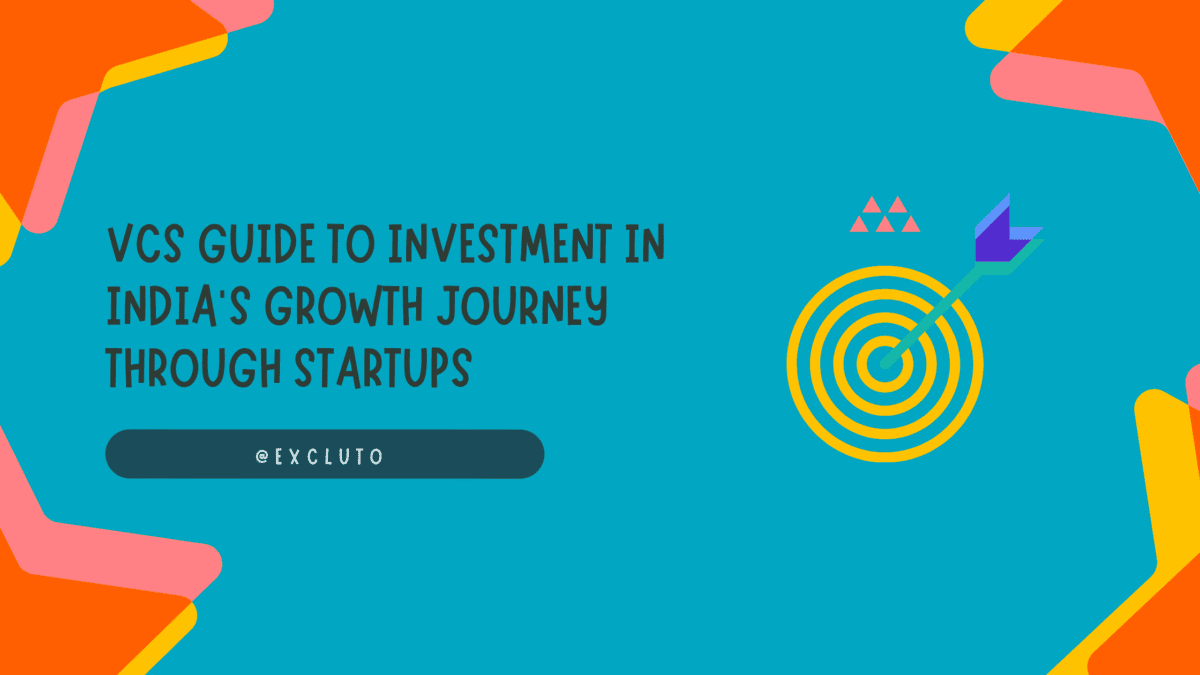Venture capitalists (VCs) seeking opportunities in India’s dynamic startup ecosystem have an exciting journey ahead. With a burgeoning market, technological advancements, and supportive policies, India offers a fertile ground for investment.
In this guide, we’ll explore key factors VCs should consider when investing in India’s growth journey through startups, with real-life examples and case studies to illustrate each point.

1. Understanding Market Trends and Dynamics
Before diving into investments, VCs need to grasp the market trends and dynamics shaping India’s startup ecosystem. For instance, the rapid digital adoption, increasing smartphone penetration, and the rise of e-commerce have created opportunities across sectors like fintech, healthtech, and edtech.
Case Study: Swiggy
Swiggy, a food delivery startup, emerged as a game-changer in India’s food industry, disrupting traditional dining habits and catering to the growing demand for convenience and variety in urban areas. Founded in 2014 by Sriharsha Majety, Nandan Reddy, and Rahul Jaimini, Swiggy quickly gained traction by offering a seamless ordering and delivery experience through its mobile app and website.
According to NASSCOM, India’s fintech market is expected to reach $150-160 billion by 2025, driven by factors like increasing internet penetration, government initiatives, and digital payment infrastructure development.
2. Identifying Promising Sectors and Niches
VCs should identify promising sectors and niches with untapped potential for growth. Whether it’s fintech, agritech, or renewable energy, focusing on sectors aligned with India’s developmental goals and market demands can lead to lucrative investment opportunities.
Case Study: Razorpay
Razorpay, a fintech startup, recognized the need for digital payment solutions in India’s evolving economy. By offering seamless payment solutions to businesses, Razorpay achieved rapid growth and attracted investment from leading VCs, positioning itself as a key player in India’s digital payments landscape.
The Indian agritech sector received $1.7 billion in funding in 2020, showcasing investor interest in addressing challenges and modernizing the agriculture value chain, as per data from AgFunder.
3. Assessing Founder Capabilities and Vision
Investing in startups is inherently a bet on the founding team’s capabilities and vision. VCs should assess the founder’s track record, domain expertise, and leadership qualities to gauge their ability to execute the business plan and navigate challenges.
Case Study: Zomato
Zomato, a food delivery and restaurant discovery platform, was founded by Deepinder Goyal and Pankaj Chaddah in 2008. Their vision to revolutionize the food industry in India led Zomato to become a unicorn and attract investment from VCs worldwide.
According to a report by Tracxn, 60% of Indian startup founders have prior work experience in multinational corporations, highlighting the importance of industry knowledge and experience in entrepreneurial success.
4. Mitigating Risks through Due Diligence
Due diligence is crucial for VCs to mitigate risks and make informed investment decisions. Thoroughly assessing the startup’s financials, market potential, competitive landscape, and regulatory environment can help identify red flags and opportunities for value creation.
Case Study: Ola
Ola, a ride-hailing company, underwent rigorous due diligence by investors before securing funding. VCs scrutinized Ola’s business model, scalability, and regulatory compliance, leading to successful investments that propelled Ola’s growth and expansion.
According to a survey by Grant Thornton, 72% of Indian startups have faced compliance-related challenges, underlining the importance of thorough due diligence in mitigating regulatory risks.
Conclusion
Investing in India’s growth journey through startups offers VCs a unique opportunity to be part of the country’s innovation ecosystem and contribute to its economic development.
By understanding market trends, identifying promising sectors, assessing founder capabilities, and conducting thorough due diligence, VCs can maximize their chances of success and drive impactful investments that fuel India’s growth story.
Read More
Everything About Excluto: Platform Where VCs & LPs Connect, Legally & Confidentially

